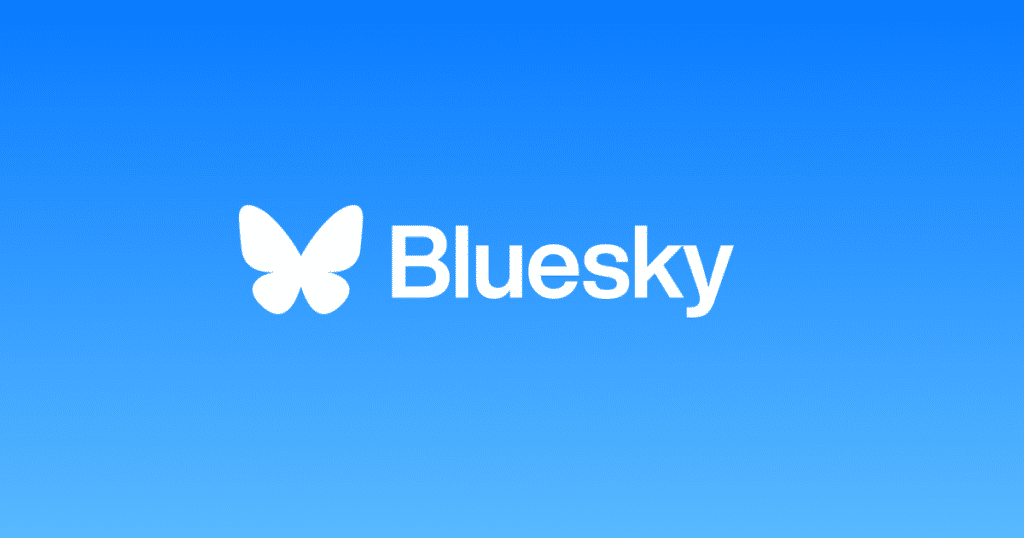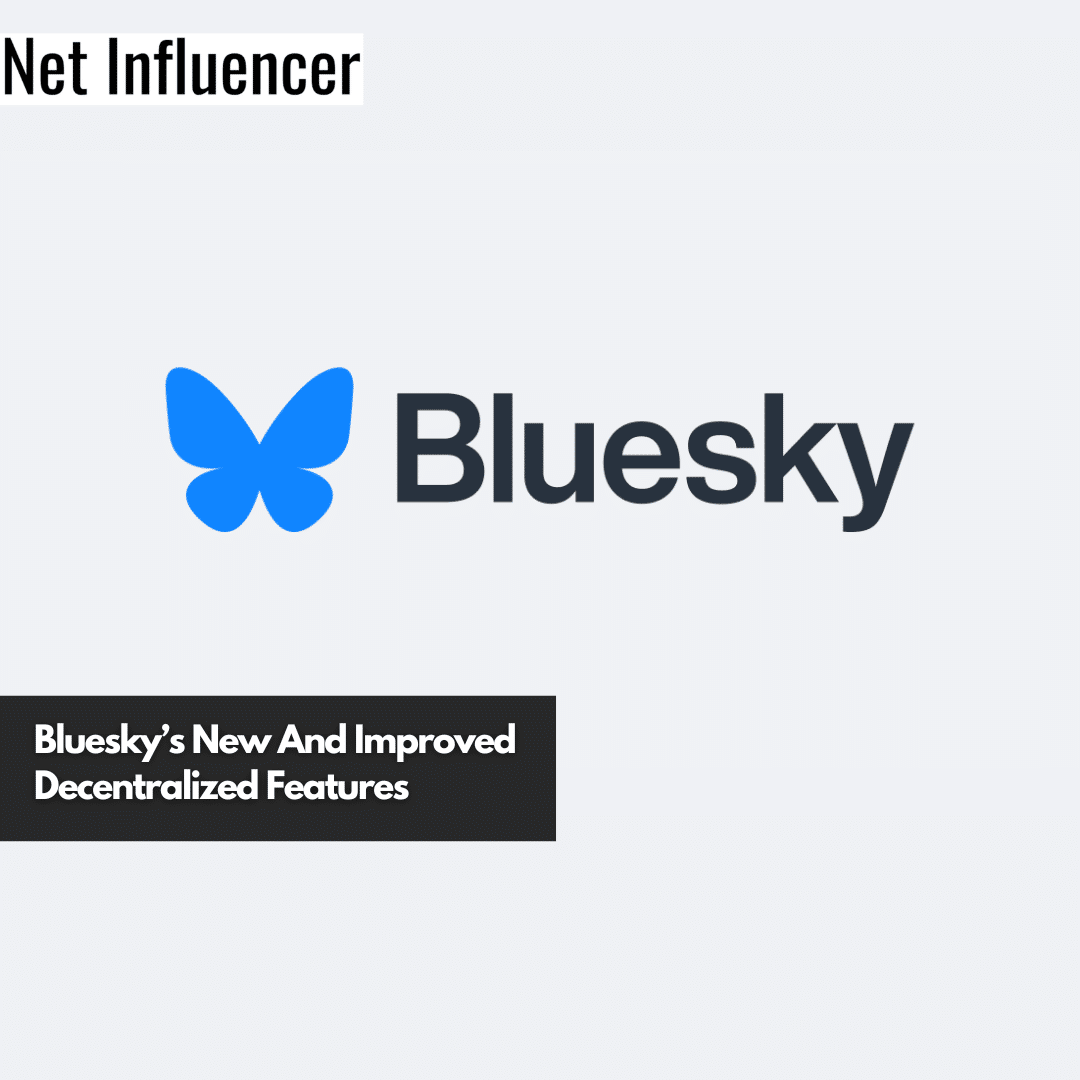Platform
From 800K to 4 Million: Can Bluesky Maintain Its Incredible Growth Rate and Dethrone X
It’s been over a year since Musk famously purchased the popular micro-blogging platform Twitter, now X. This controversy fueled users to search for new alternatives while at the same time initiating a race to develop more micro-blogging platform options. Post, Pebble, Spill, and Mastodon were all presented as potential alternatives, yet none of them seemed to gain sufficient user adoption success with the exception of Threads by Meta. However, Bluesky is now giving Meta’s Threads a run for its money, with a somewhat incredible growth speed that’s not projected to slow anytime soon.

After a year of being invite-only and in beta-phase, Bluesky opened its doors to all users last month. Within a mere twenty-four hours the platform had gained over 800,000 new users and was predicted to hit 4 million new signups before month’s end. While those numbers are positive, the micro-blogging network has a lot of catching up to do if it wants to overtake or match Threads in popularity: with over 130 million active monthly users on Threads or 1.8 million monthly Mastondon’s users.
And even though users seem to be experiencing the ultimate love-hate relationship with X, Elon Musk, and their new feature rollouts, it doesn’t stop the platform from being at the top of Apple App Store lists.
What is BlueSky?
The new app was created by former Twitter CEO Jack Dorsey and claims to be a decentralized network. The social app presents various similarities to X, especially with its user interface, content moderation algorithms, and community engagement.
The platform uses an open-source framework more commonly known as the AT Protocol. This protocol offers users outside of the company full transparency into how the project is being built and developed.
The app was first introduced by Jack Dorsey in 2019 while he was still the active CEO of Twitter. At the time he stated that Twitter would be funding a small team of open-source architects, developers, and designers, who would be in charge of developing a web3 and decentralized micro-blogging social media network. He hoped that once the kinks were all hashed out Twitter would go on to adopt this standard. However, that was before Musk purchased the platform. In 2022, Bluesky separated from Twitter and rolled out its own beta phase to selected users.
Main Features of BlueSky
Once users sign up to Bluesky you’re notified that you need to create your username handle. These handles are depicted following this format: @username.bsky.social
Users are also directed to fill in their display name, which appears in bold text and is more prominent than the aforementioned handle. Another feature that users can adopt is the integration of a domain name. If a user owns a domain they can connect it and use it for their username handle.
The functionality of the social media network in many senses is similar to Twitter. You’re able to click a plus button to share a new post. The character limit is 256 and users are also able to include images. The “posts” can be reshared, and replied to, and even reported.
You can find, search, and follow other users on the platform and their content will be displayed on a user’s home feed. Bluesky used to have a What’s Hot feed that featured trending posts, yet this has since been removed and replaced with a more user-friendly “Discover” feed that offers more than just viral posts.
This update coincides with the rollout of several new features designed to create a more enjoyable experience for users and improve the app transparency:
- Open to the public: Anyone is now able to create a new account and start using the platform, whereas before it was invite-only.
- Moderation: The platform’s stackable moderation feature allows users to sign up and become content moderators following the app’s existing guidelines. For instance, you could sign up and offer services such as fact-checking for a specific Bluesky community.
- Labeling: Third-party organizations can undertake their own moderation and tag labels to content that is misleading, or partially inaccurate. Users can choose to view and be shown these labels or not, using a toggle feature within their settings.
- Federation: The federation is an exploratory feature that allows end-users to host their posts and content on serves of their choice, thus promoting enhanced user authority and the decentralized nature of the app.
- Self-hosting: Lastly, the app has also rolled out a feature that allows developers to set up their own personal servers that are then connected to the network infrastructure.
With the federation feature, the network will continue to appeal to users who are interested in decentralized and self-hosted options where they can set up their own personal server that could be developed to cater to the specific and unique needs of a community. This would further allow individuals to choose their own moderation guidelines and block users according to their own terms.
These features are extremely appealing to those who wish to create a Twitter alternative within Bluesky, offering communities a safe internet environment to interact. This also voids the somewhat controversial Bluesky moderation guidelines, that users have found controversial.
While the AT Protocol is rather similar to the features that Mastondon offers, the protocol itself is newer seeing as Mastondon runs on ActivityPub. ActivityPub is also the protocol that is being adopted by Metas’ Threads app and it’s considered a W3C-endorsed standard.
Bluesky’s Impact on Social Media Landscape
This is the million-dollar question. What will Bluesky’s impact be within the social media landscape?
Well, it ultimately depends on how many users are interested in decentralized options and see value in having ultimate control over their personal data and app experience.
Bluesky stated the following: “Here, your experience online isn’t controlled by a single company. Whether it’s your timeline or content filters, on Bluesky, you can easily customize your social experience. This month, we’ll be rolling out an experimental early version of “federation,” or the feature that makes the network so open and customizable. On Bluesky, you’ll have the freedom to choose instead of being held to the whims of private companies or black-box algorithms. And wherever you go, your friends and relationships can go with you.”

As mentioned previously, Meta’s Threads app is also following suit by integrating the ActivityPub protocol. This will allow users to post different DEFI apps with the protocol with systems across the board communicating with each other. If apps are using different protocols, as is the case with Bluesky, interoperability will be lacking. Nevertheless, the idea is that these options will allow users more control in the future and seek to democratize the internet once again.
For example, in the future, this could allow users to synchronize their apps into one single online presence, including their data, connections, and more. Further allowing them to transfer this information seamlessly from one app to another, and even completely erase all of their personal information when and if they choose.
Defi apps also offer a unique spin on communities, allowing end-users to customize their web experience.
But, will all of this work? Is there enough interest in decentralized social media, and do users care enough about their personal data to foster these services and build the new standard?
As of right now, in theory, it looks promising. But, only time will tell.





















